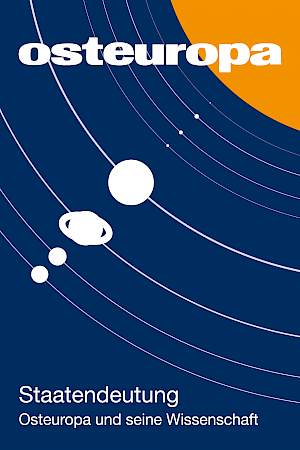Heidegger in Russia
Forms of reception and new developments
Deutsche Fassung
Abstract
In the Soviet Union, Martin Heidegger was ostracised. His writings were not translated into Russian, and academic philosophers were forbidden from studying him. However, as early as the 1980s, an intense wave of appreciation for Heidegger took hold in Russia, where there was particular enthusiasm for the extended opportunities for expression provided by German existential philosophy. Today, most of the authors who draw on Heidegger’s work are of a conservative mindset. In the Russian history of philosophy, there are also numerous points of reference to Heidegger’s thought, particularly in the conceptualisation of the terms “being”, “language”, “people” and “God”.
(Osteuropa 1-2/2020, pp. 61–83)



